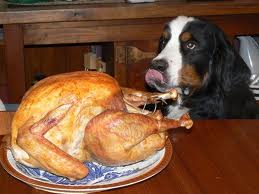 LEPTOSPIROSIS? What the heck is that?
LEPTOSPIROSIS? What the heck is that?
Hello again, more news on the Mountainview Blog.
We’ve been getting this question a lot: What is Leptospirosis, and why should I vaccinate for it?
I figured I’d answer publicly to help explain this disease. Leptospirosis is actually a disease caused by bacteria. This bacteria is usually found in rodent urine, in most areas of the southwest, including Riverside County, CA. Your pet may be exposed while running in parks, on hiking trails, or anywhere rats/mice live like orchards or trash areas. The most common way to be infected is for a dog to walk through water, including a small puddle, that has been contaminated by rodent urine or the bacteria, which then gets into the skin through microscopic breaks. Once in the bloodstream, the bacteria can then infect the kidneys and the liver causing anorexia, fever, kidney and liver failure. If the liver has been affected, pets will often have a yellow hew to their eyes, skin, and gums if severe. The pet will often start drinking a lot followed by excessive urine, but as the disease progresses, the urine output can actually decrease, or even stop in failure cases. This disease needs aggressive early treatment with IV and oral antibiotics and intravenous fluids if the pet is to be saved. Of huge concern is the fact that this is a Zoonotic disease, meaning that people can get this disease from their dogs, and easily at that. Any patient with these symptoms, we will often recommend their owners see their own doctors.
Now for the good part, there is a vaccine. There are actually 2 different vaccines for this disease. The most common vaccine is combined with the Distemper/Parvo/Adenovirus/Parainfluenza (DHPP) that most people have heard of. This is the vaccine that most veterinarians use locally. It contains 2 of the 9 known strains of this disease. There is also a separate vaccine that contains 4 other strains, and must be ordered separately. If your pets go hiking, camping, are “off road” a lot, or live near bodies of water in our area, we strongly recommend the Lepto vaccine. If you have a small dog who never leaves your side, we are less likely to vaccinate as small pets may have an increased risk of reaction to this vaccine including pain, swelling or a mild temporary fever. So, again, if you have questions, ask your veterinarian, but if you are worried, the vaccine is the way to go.
Thanks again for reading everyone.
 JERKY TREAT TOXICITY:
JERKY TREAT TOXICITY:


